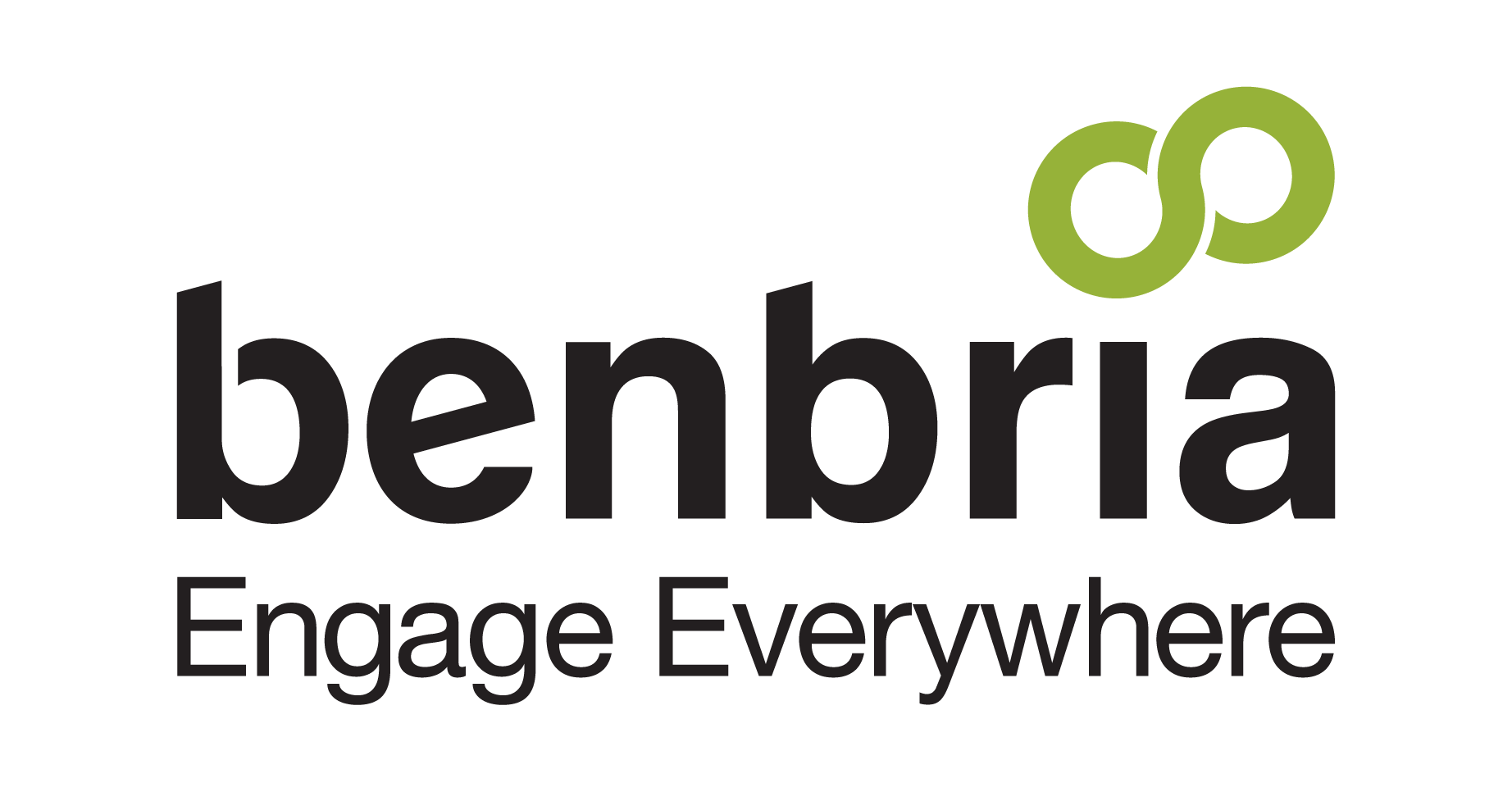When it comes to designing a product or providing great service, the customer should always be top of mind. Customer feedback and sentiments matter and are pivotal in the success of any business.
This is especially true within recent years where online forums and word of mouth can have such a monumental impact on reputations. Meeting and exceeding customer expectations has become an all-new aspect to hone in on.
This is why, in an effort to truly understand customer sentiment, businesses have started to obtain feedback through customer satisfaction surveys.
In this article, to help you obtain the most reliable feedback data, we’re taking a look at customer satisfaction survey best practices. Here you’ll find the various types of questions to consider, how you can create a successful survey and real company examples. Let’s get started.
Customer Satisfaction Survey Question Tips
In order to obtain the most useful answers from your customers, the questions you ask must be insightful and resonate with them. For customers, giving up information isn’t always effortless. Many customers won’t want to share information if they don’t trust you, if you’re not engaging enough, or if you aren’t positioning yourself as a thought leader. Here, we share some considerations in addition to the right questions to ask, so your customers are less reluctant to fill out your survey.
Create An Engaging CSAT Survey Introduction
Regardless of the questions, you decide on including in your survey, your customers won’t want to fill it out if they don’t feel compelled to do so. Many successful feedback programs (as you will further see below) work because the brand does a phenomenal job at introducing it and disseminating what exactly the customer will get by filling the survey out.
When designing your survey, remember to have an engaging introduction that shares both the incentive and the process of filling it out successfully.
Ask For Customer Demographics
Understanding where your customer is from, their age, employment, the gender they identify as, and more, can help you better understand the type of person that is purchasing your product or service. Not to mention, demographic questions are simple enough to help ease the customer into the survey.
Using the answers gathered from these questions, you can better tailor your product/service, the messaging associated with it, and your overall marketing strategy. In addition, it’s a helpful tool for the marketing and sales teams who build personas and create strategies around audience behaviours.
Here we share some of the most basic customer demographic questions:
- Where are you from?
- What establishment do you visit most often?
- What is your age?
Gather Product Insight
One of the most important types of questions in a CSAT survey are ones that examine, on a more granular level, the customer’s experience with the product or service. Having first-hand knowledge of how a customer feels about particular aspects of your product/service, what they use most frequently, the most valuable features and so on, can help you with future enhancements. Not to mention this can also lead to a reduction in customer churn as most businesses don’t know what they need to improve on until it’s too late.
When building your survey, consider product/service questions like these:
- What is your favourite feature of our product/feature?
- Does our product/service meet your needs?
- How often do you use the product/service?
- How easy was it to obtain this product/service?
Make An NPS Reference
Although this is ultimately a customer satisfaction survey, having insight into whether a customer will recommend your establishment or not can be really telling of the quality of your product or service. Pairing NPS surveys with questions about your product/service can help you determine what is deterring customers from returning or repurchasing.
Prompt An Option For A Follow-Up
If you plan on following up or providing customers with more relevant surveys after they submit their responses, having questions at the end asking if they’d like to opt-in to more surveys is ideal.
When asking these questions, make sure to be clear about what they’ll be opting into and in some cases how frequently you plan to reach out. For example, a great sample question would be: “Would you be okay with receiving a relevant survey every 6 months to provide personalized feedback?” If a customer confirms, they’ll know exactly what they’re signing up for.
Provide Question Options
Lastly, when designing your survey it’s important to be mindful of the different types of survey questions you can utilize. We suggest offering both multiple choice and open-ended questions. With open-ended questions, customers can get into detail about their experience and how they feel – which is great for research purposes. When designing the layout, try to place a good ratio of open-ended and multiple choice questions. Too many open-ended questions may be too long for a customer to fill out, while not having enough won’t give you the data you need.
16 Customer Satisfaction Survey Examples from Real Brands
Now that you understand the logistics of putting together a successful customer satisfaction survey, it’s time to see these best practices in motion. Here are 16 customer satisfaction survey examples from real brands that are worth noting.
1. Nest
Referring back to our first point on engaging introductions, Nest, a leading home technology platform uses an enticing header to grab the attention of their customers. By stating their evident desire in listening to the voice of the customer, their patrons feel more tended to and inclined to fill it out.
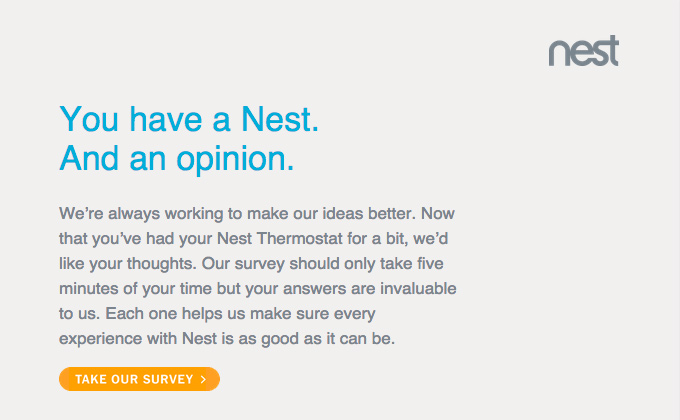
2. Suit Supply
Men’s fashion label Suit Supply is a prime example of providing an insightful survey with a great incentive. 48 hours after filling out the survey, the brand sends every customer a personal $50 gift card. Talk about a persuasive reason to provide feedback.
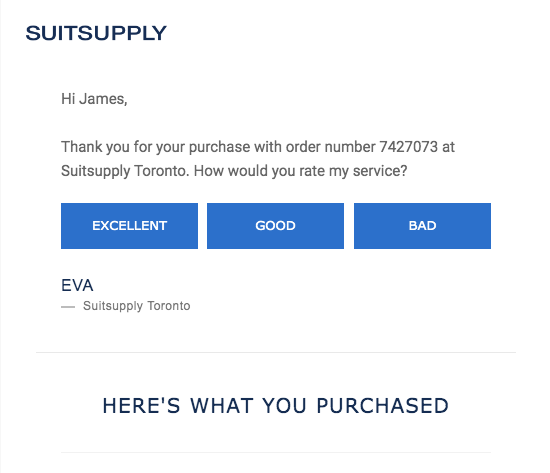
3. Amazon
It’s no secret that Amazon is a powerhouse when it comes to delivering great products and unforgettable experiences. To them, the experience is always at the forefront and feedback is always encouraged. Amazon uses personalized and engaging messaging in their survey introduction to thank their customer, even before they begin.
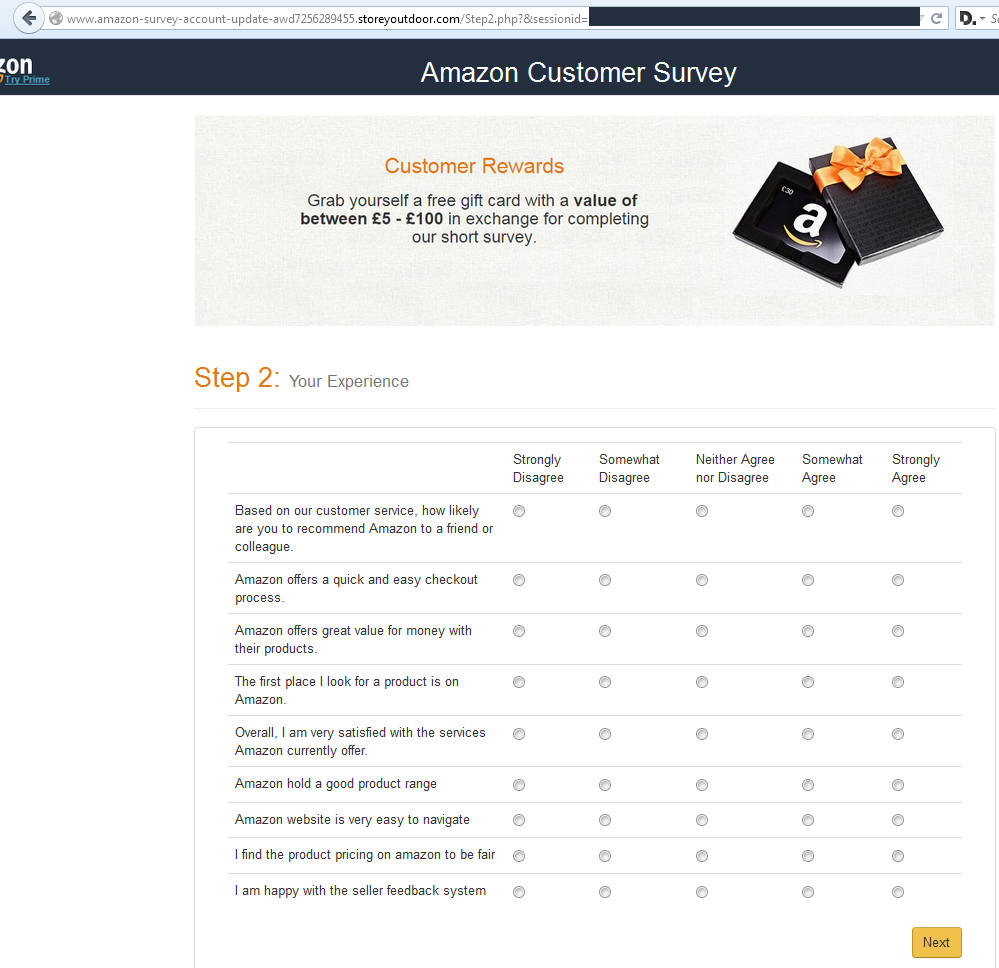
4. A&W Canada
Canadian fast-food chain A&W knows that the key to a successful business is going above and beyond the traditional customer experience. In their feedback strategy, customer satisfaction surveys are provided at multiple touch points in the customer journey. Whether it is in store on a kiosk, or immediately after the customer has left on their mobile device, A&W collects feedback at key moments – sending responses directly to employees so they can recover those at-risk or simply say “thank you!”.
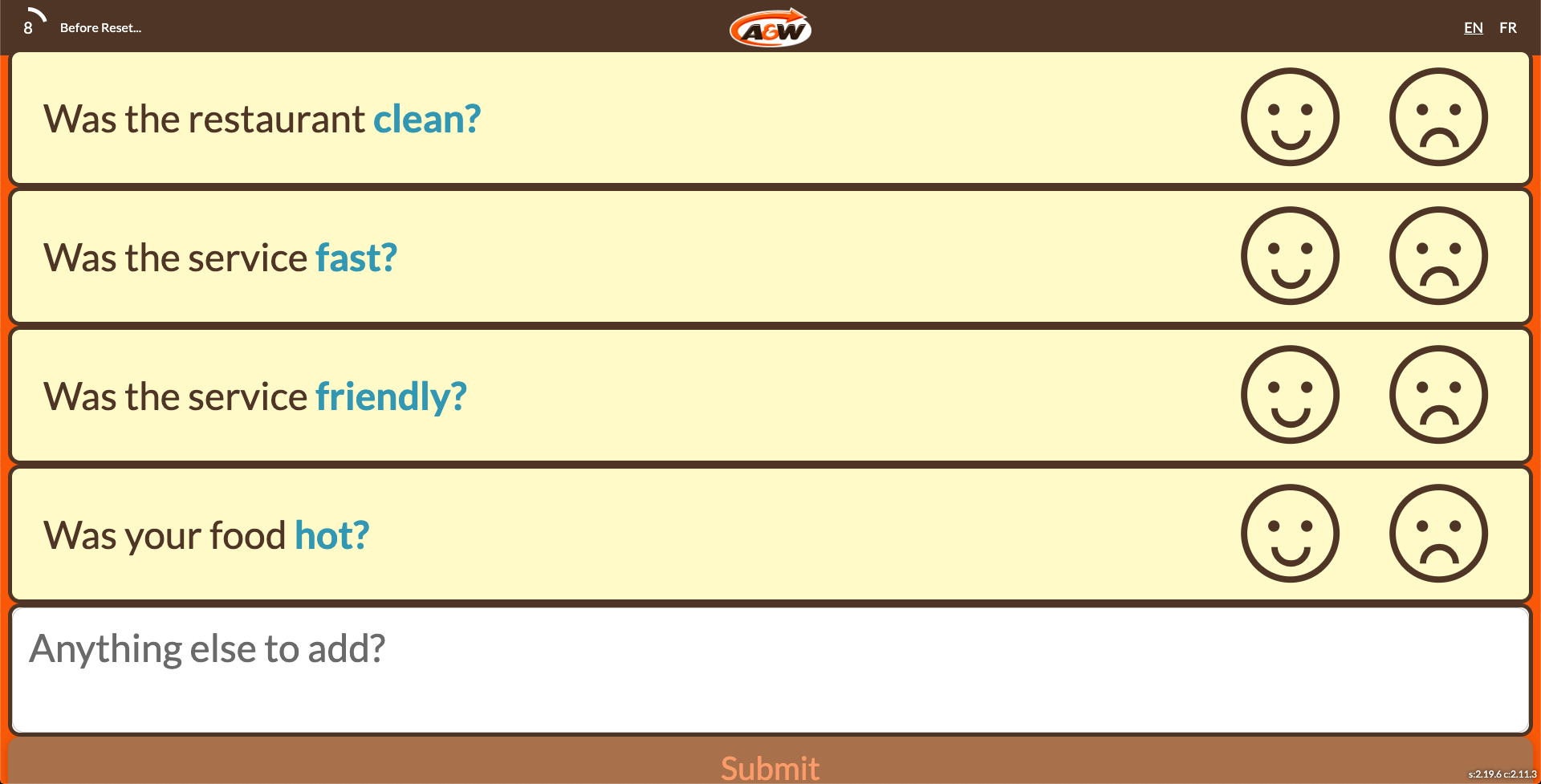
5. Uber
Uber is a booming business with great customer-driver transparency. With the Uber app, customers and drivers are prompted immediately after the ride on their mobile device. With an option to provide a quick star-rating, describe their sentiment, or write a more lengthy response, customers can express their sentiment and have it directly forwarded to the driver and corporation – for immediate action on customer sentiment.

6. Nordstrom
Nordstrom has been a leader in delivering an exceptional customer experience for quite some time and this is highly evident in their feedback survey. Making the process simple for the customer, they provide a quick 2-3 minute survey that touches on details covering both their experience and the quality of the product.
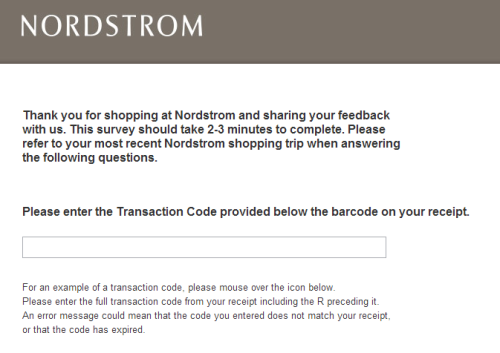
7. Pyro’s Fresh Pizza
This unique pizza dining experience based in Memphis, Tennessee takes pride in listening to every customer inquiry. With their real-time visibility, Pyro’s resolves issues in-moment and even has functionalities to send serious inquiries or substandard comments directly to management. With such a strong emphasis on the customer experience, there is no wonder customers are constantly dazzled.
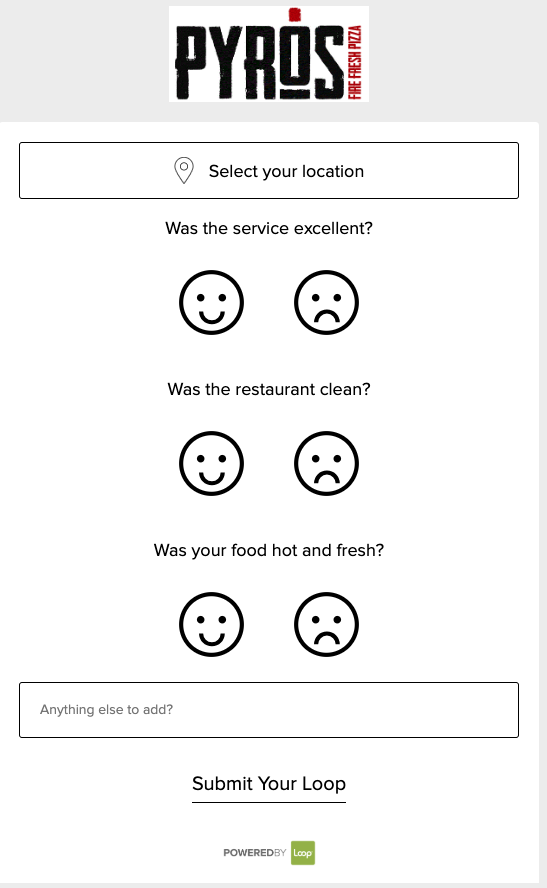
8. Netflix
Netflix provides a simple and easy to navigate the feedback process with both multiple choice and long-form response options. Using this insight, Netflix perfects the customer experience by providing recommendations that customers, to this day, rave about.
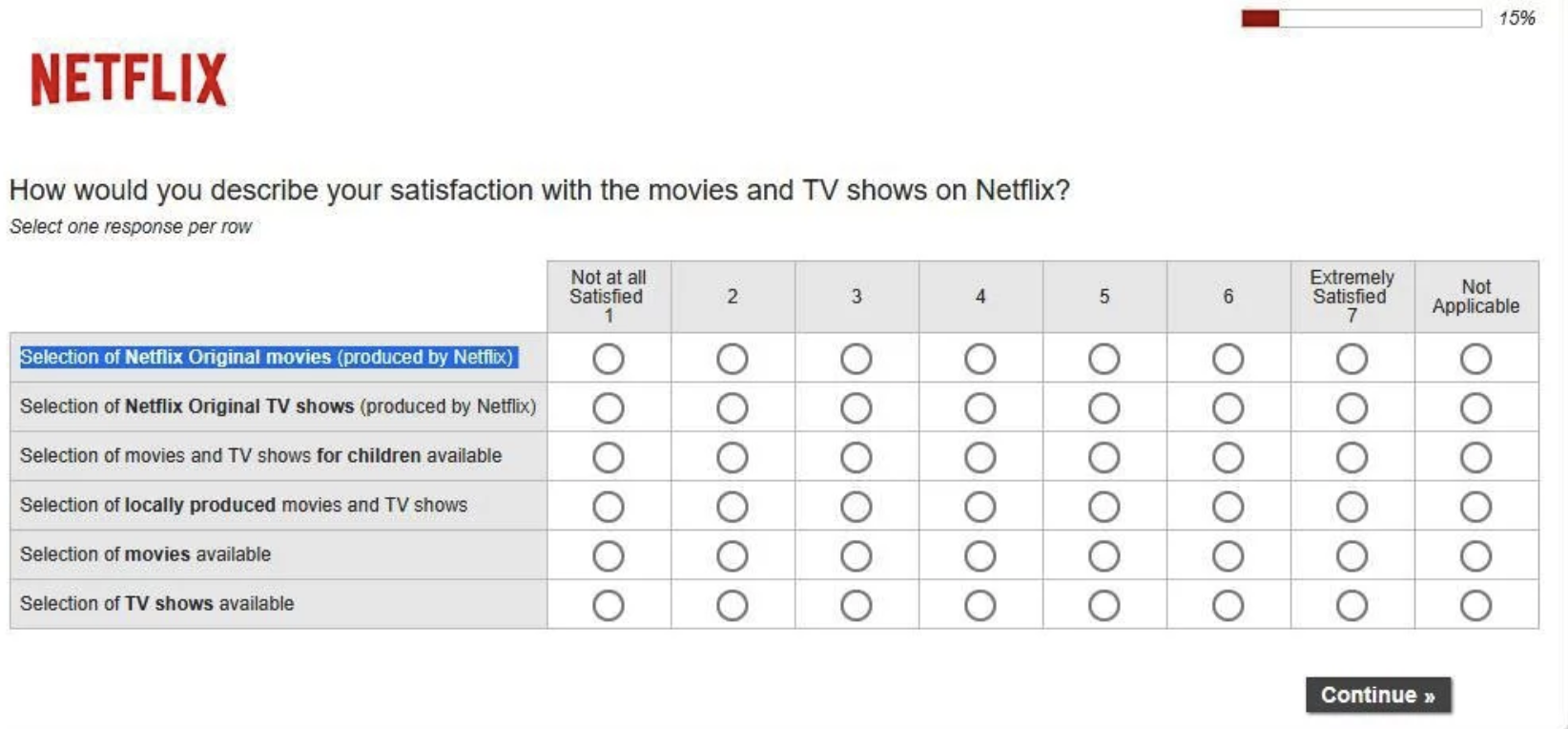
9. Best Buy
Best Buy takes feedback further by personalizing questions in line with previous answers their customers have provided. By posing questions relevant to their specific shopping experiences, it becomes more engaging for the customer. What’s more, they further incentivize customers through contests and prizes.
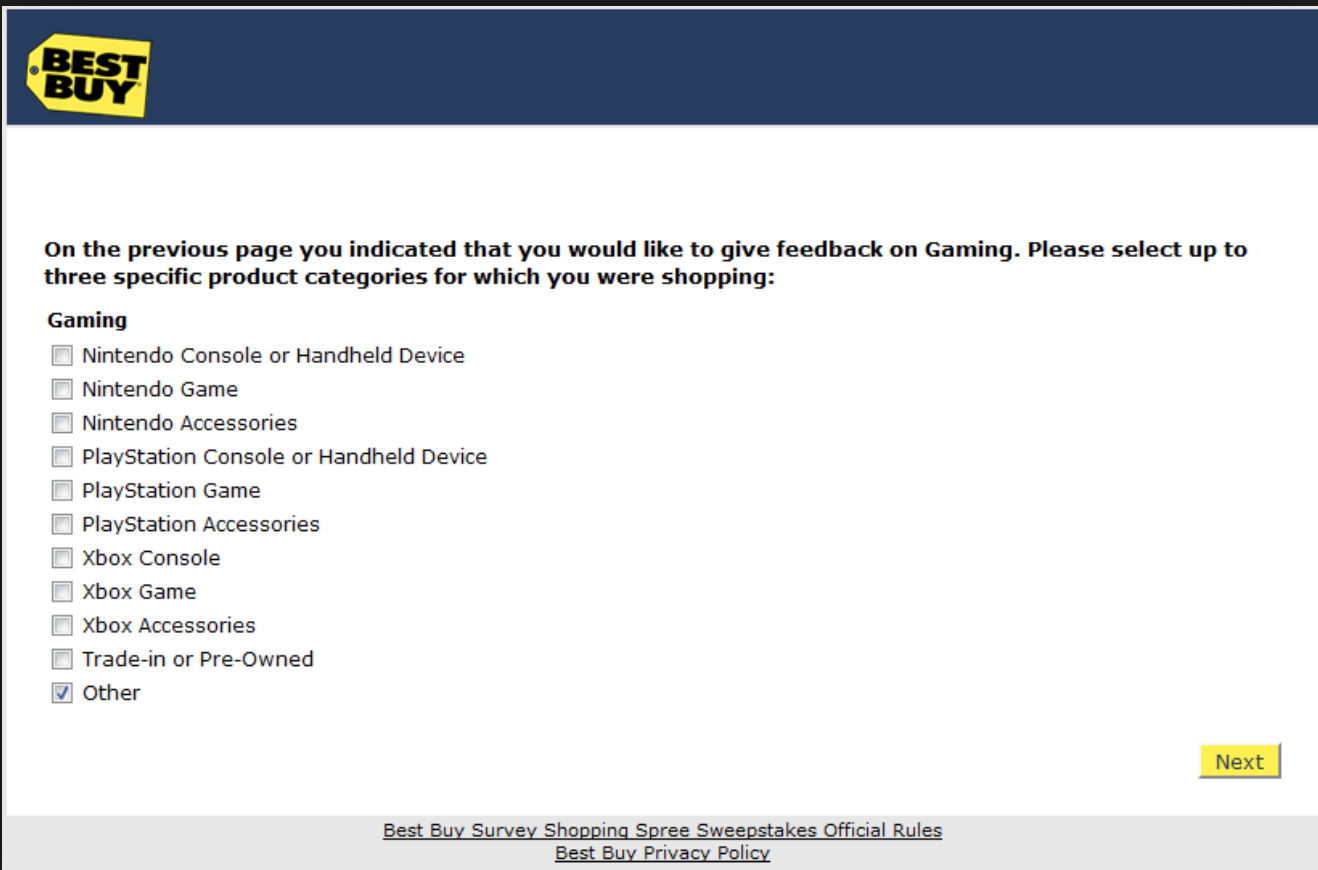
10. Starbucks
When it comes to structure and the right questions to ask, Starbucks checks all the boxes. Usually, in the form of a mobile or web survey, they provide a range of multiple choice questions and then allow the customer to exhaust their thoughts at the end with an open-ended question. This is an ideal survey for customers that are time sensitive.
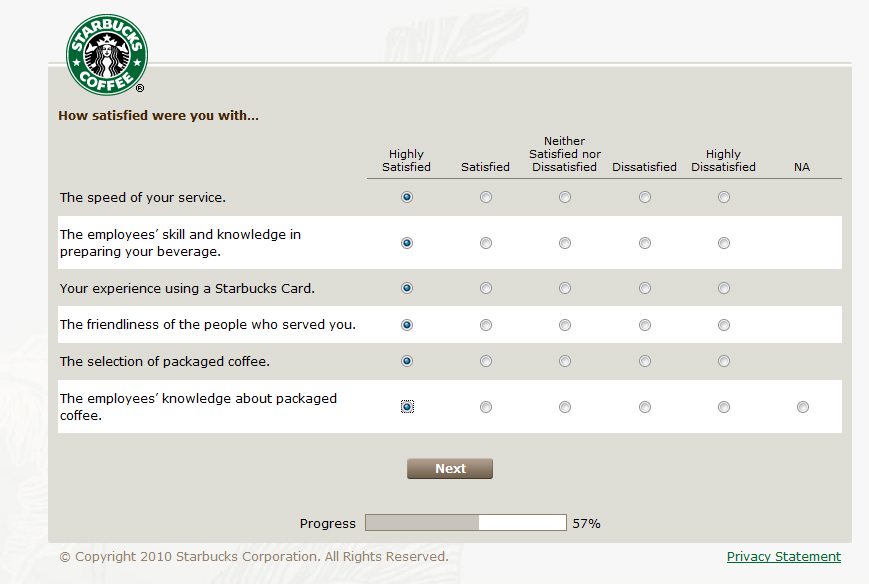
11. HubSpot
Hubspot’s survey program is a clear example of listening to the voice of the customer. After an interaction with their support team, customers are prompted with a screen to provide immediate feedback. Using the insight gathered from customers and research, they consistently elevate their platform accordingly.
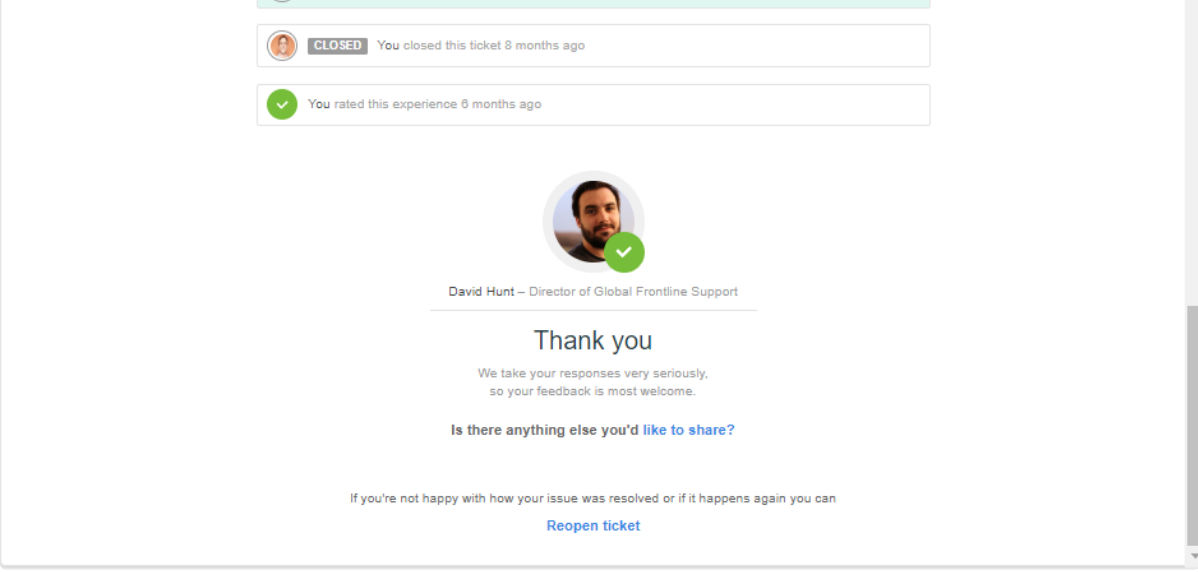
12. Sodexo
At Sodexo, customized kiosks and in-depth questions are used throughout their facilities for both customers and employees. Using this insight, Sodexo continues to successfully meet the needs of their customers while creating an engaging work experience for their employees. It also helps them to understand the varying needs of their customers across their entire network of cafes. This helps to customize menus, processes, and training to be aligned with the needs of the local customer.
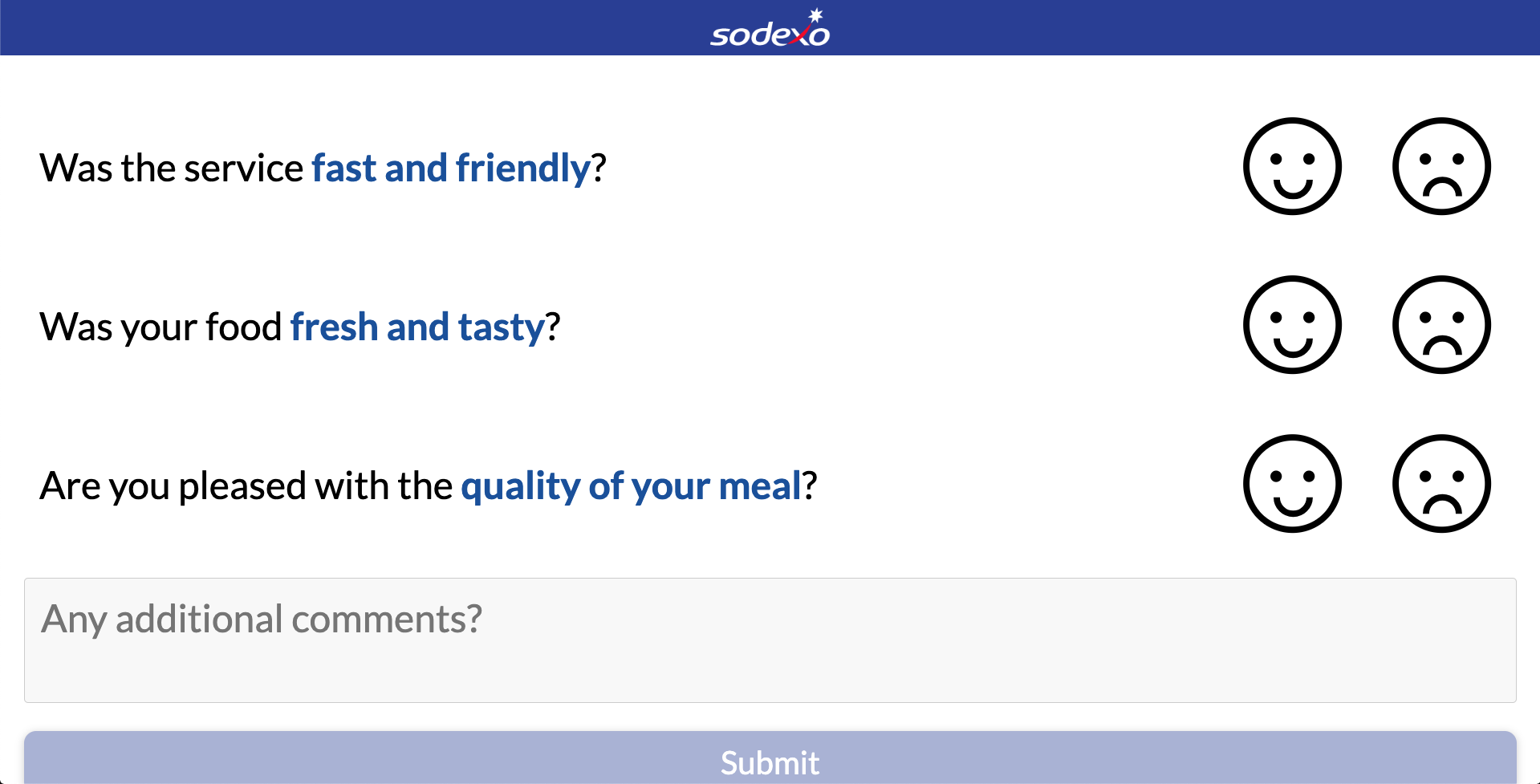
13. Ikea
Ikea has dominated the home goods sector for quite some time, however much of their success can be attributed to their dedication to the customer. Not only is their entire layout based on the customer experience, they regularly follow up and request feedback from their customers on the experience. Using this insight, they can better stage their store and position products in a way that is alluring to the local customer.
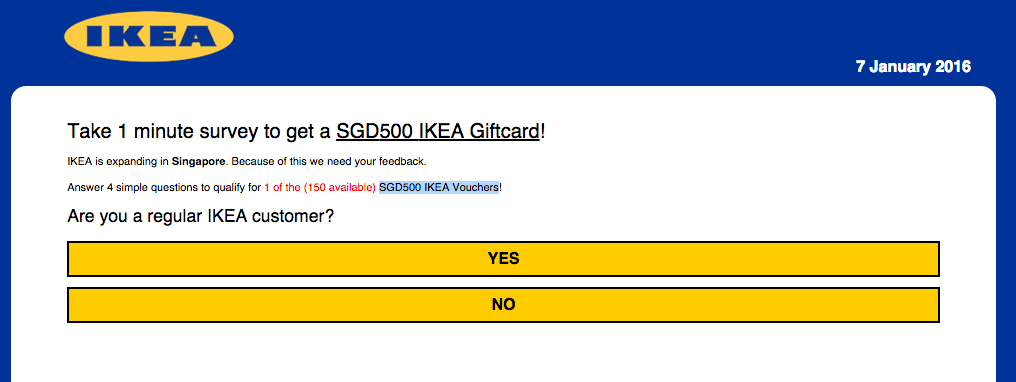
14. Guckenheimer
Foodservice giant Guckenheimer has been building relationships with their customers since inception. Their business model and company culture are built on flourishing customer experiences, so it’s no wonder they collect feedback and implement change regularly.
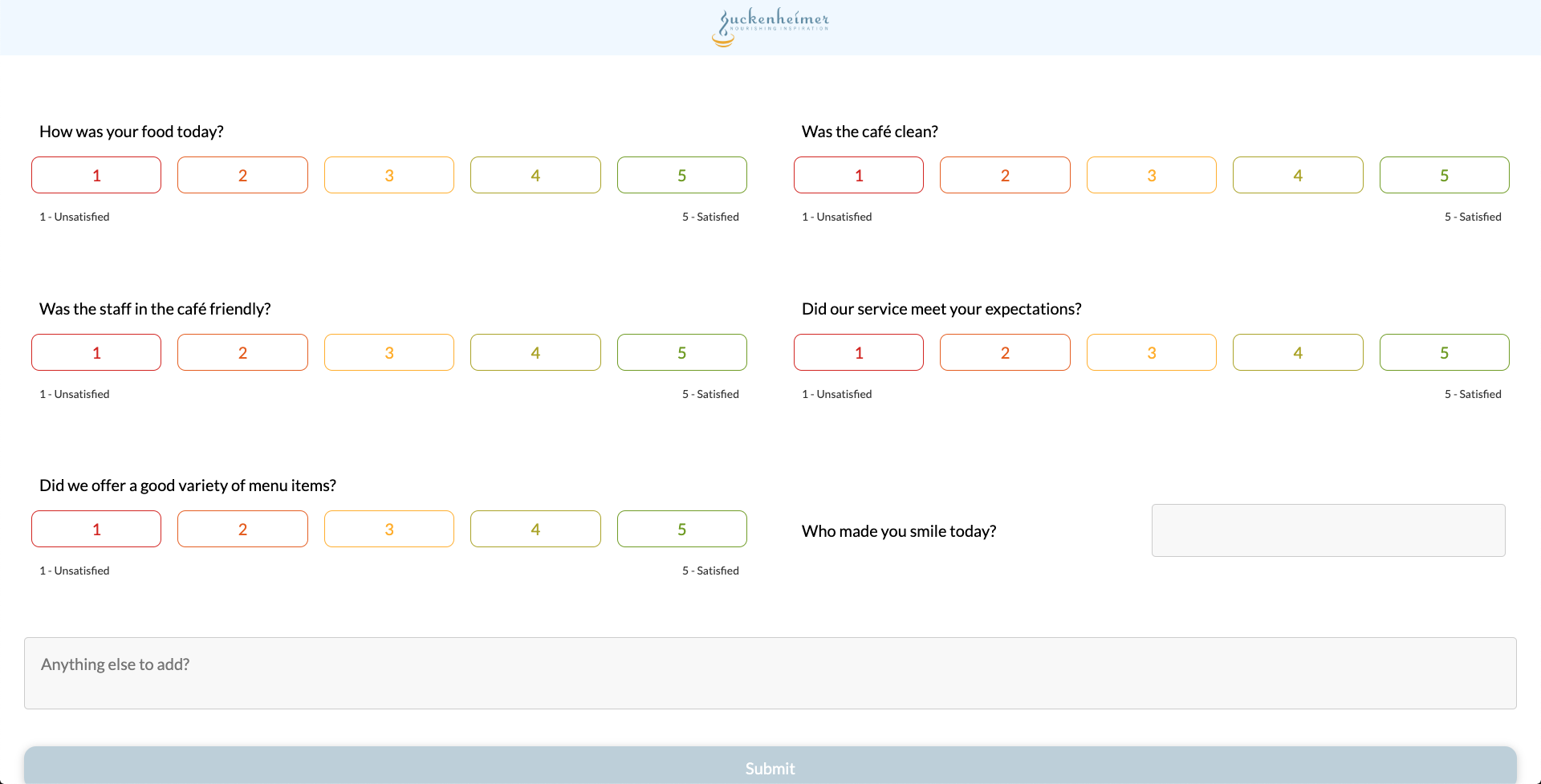
15. Expedia
When it comes to delivering fast and efficient surveys Expedia knows how to get the job done. Sending surveys in-the-moment, they can leave details right after check-in to provide businesses with real-time insight. A critical element in customer retention.
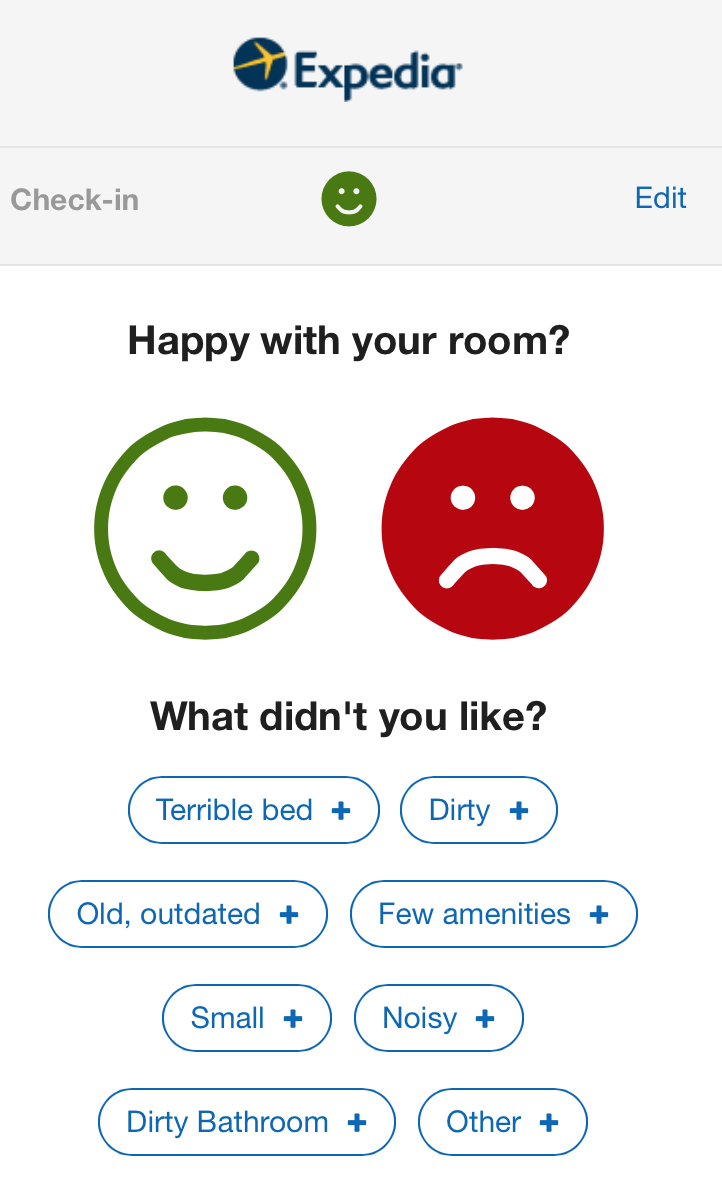
16. Madewell
Women’s clothing store Madewell has mastered the art of customization. After a customer has made a purchase, they’ll send a timely email with the option to write a review or fill out a survey with their product featured on the request. This shows attention to detail and can be more engaging for a customer.
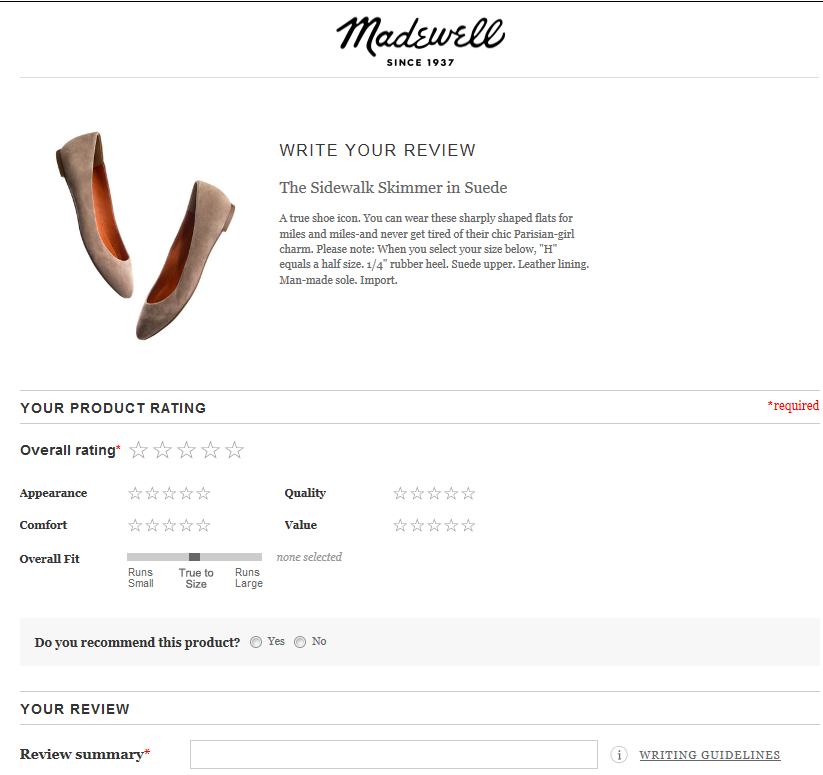
When building your customer satisfaction survey, it’s important that you keep these best practices and examples in mind. Through an engaging introduction, inquisitive questions, and a friendly follow-up, you’re well on your way to designing a superb customer satisfaction survey.
